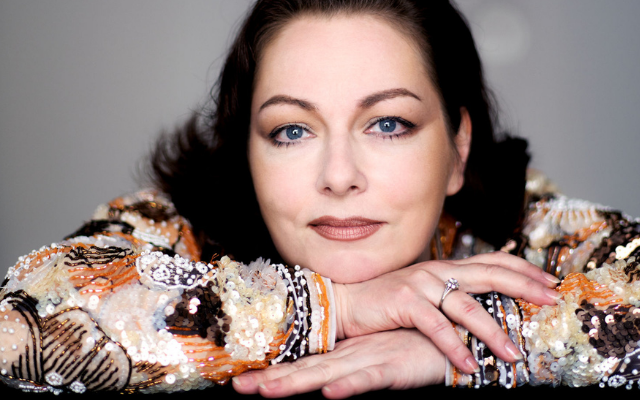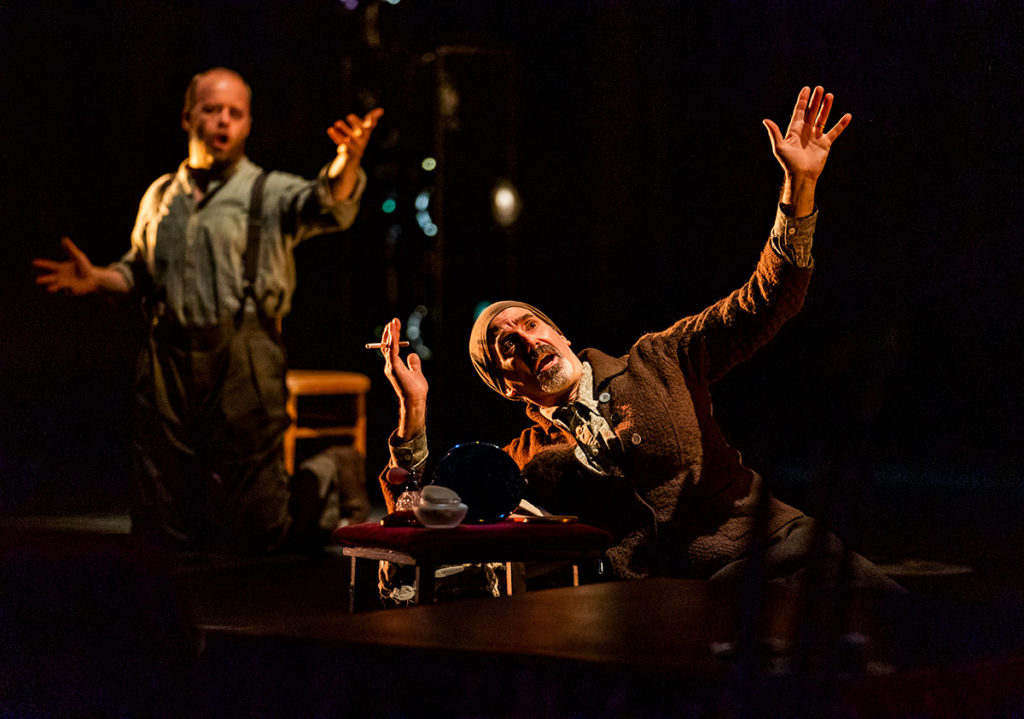
Dorothea Röschmann and Joseph Middleton; Wallis Giunta, Sean Shibe and Adam Walker, Howard Assembly Room, Leeds, April 28
LEEDS Lieder was back in its usual springtime slot and all the better for that. More to the point, the line-up was as star-studded as ever.
On the first evening of this 11th festival, German soprano Dorothea Röschmann made her north of England debut in tandem with festival supremo Joseph Middleton as her piano-partner in a programme of Schumann, Mahler, Wolf and Wagner.
There is something reassuring about hearing native Germans in lieder: whatever else, they have this repertory in their bloodstream.
Schumann’s settings of five letters and poems attributed to Mary, Queen of Scots delve into the heart of Mary’s isolation after imprisonment by her sister, Queen Elizabeth I.
They are an unusual starter for a programme, but Röschmann handled them with considerable refinement, capturing the happy reminiscences of France – Schumann’s major-minor alternations – and prayerful after the birth of Mary’s son.
There was no escaping Mary’s desolation at 19 years’ imprisonment and her final prayer before death was poignant indeed in Roschmann’s account.
Six of Mahler’s settings from Des Knaben Wunderhorn made a welcome contrast, none more so than the opening ‘Rheinlegendchen’ (Little Rhine Legend), which was turned into a cutesy dance, full of sparkle.
There was a relentless piano momentum in the tale of the starving child, ‘Das Irdische Leben’ (Life On Earth), representing the mill-stream. She cleverly juxtaposed two duets featuring young girls disappointed in love, the one flirting in vain, the other – touchingly here – discovering that her soldier sweetheart is just a mirage: he is already dead.
Wolf’s four Mignon songs, sung by the teenager abducted from Italy by Goethe’s Wilhelm Meister, are the epitome of yearning, as she longs to return home. I
n the opening one, Kennst du as Land? – which she actually sang last – there was a lovely moment where she switched mid-phrase from a fortissimo at the plunging torrent to pose the title question much more quietly, rounding off the song with a delightful portamento in the final phrase. It was typical of her attention to detail. Middleton shadowed her closely throughout.
Written in the run-up to Tristan und Isolde, Wagner’s five settings of poems by Mathilde Wesendonck, the wife of a well-heeled silk merchant (and patron of the composer), developed out of his infatuation for her.
They are essentially love-songs, whose voluptuous harmonies – twice directly prefiguring Tristan – were mirrored in Roschmann’s lush treatment. Her gear-changing into chest tone was not always entirely smooth, but she and Middleton captured their heady atmosphere to a tee, notably in the “stop the world, I want to get off” implications of ‘Stehe Still!’ (Stand Still). This was a most satisfying opening recital, if not quite a memorable one.
Mezzo-soprano Wallis Giunta’s late-night recital, given with guitarist Sean Shibe and flautist Adam Walker, was a mixed bag. She is an engaging personality, whose prowess as an actress she has already proved here, and there was no doubting the skills of her two partners – especially Shibe, in a wide variety of styles – but their protest songs from the Americas were too diffuse to make a coherent whole.
Taking their title from one of the songs, ‘The Revolution Smells Of Jasmine’, they encompassed racism, revolution, female emancipation and “patriarchal oppression”: art as politics, in other words, but this scattergun approach missed too many targets.
Nevertheless, the programme had its moments. Four songs by the Argentinian composer Ariel Ramirez had the unmistakeable tang of Portuguese fado about them, as if their essence had spilled over from neighbouring Brazil: Alfonsina’s heartache was palpable and Gringa Chaqueña evoked a smoky underworld. Juana Azurduy, the song which included the evening’s title, was more upbeat, even triumphal.
No South American set would have been complete without Astor Piazzolla. Sure enough, the instruments dipped into L’Histoire du Tango, before Giunta conjured a vivid ‘Café’ and a frisky ‘Bordel 1900’, where the syncopation was succulent.
North America was not forgotten. Giunta gave her fellow Canadian Joni Mitchell’s ‘Woodstock’ and a couple of Joan Baez numbers. All were cleanly done in good folk-style, but lacked a certain earthiness.
The most harrowing moment came in Abel Meeropol’s ‘Strange Fruit’, written in 1937 and made famous in song by Billie Holiday two years later: the ‘fruit’ was the bodies of black victims of lynching, swinging in the breeze. Not at all comfortable.
At her best, Giunta has a witty, wacky side that she kept under wraps here, in the name of protest of course, although almost as if she were under some restraint. But she is a total professional and had also chosen her accompanists wisely. They responded with lively duets as well as unfailing support.
Review by Martin Dreyer



